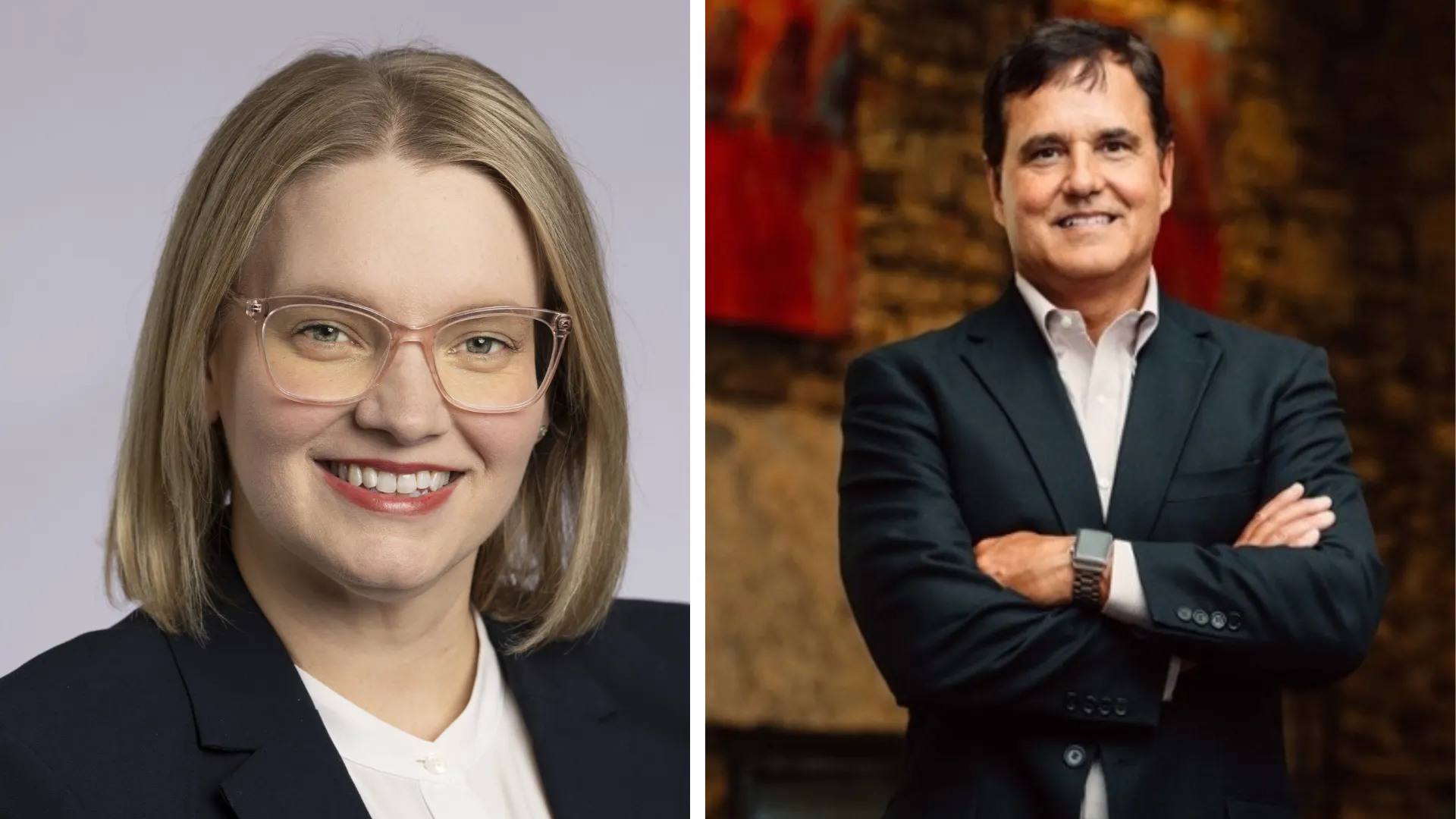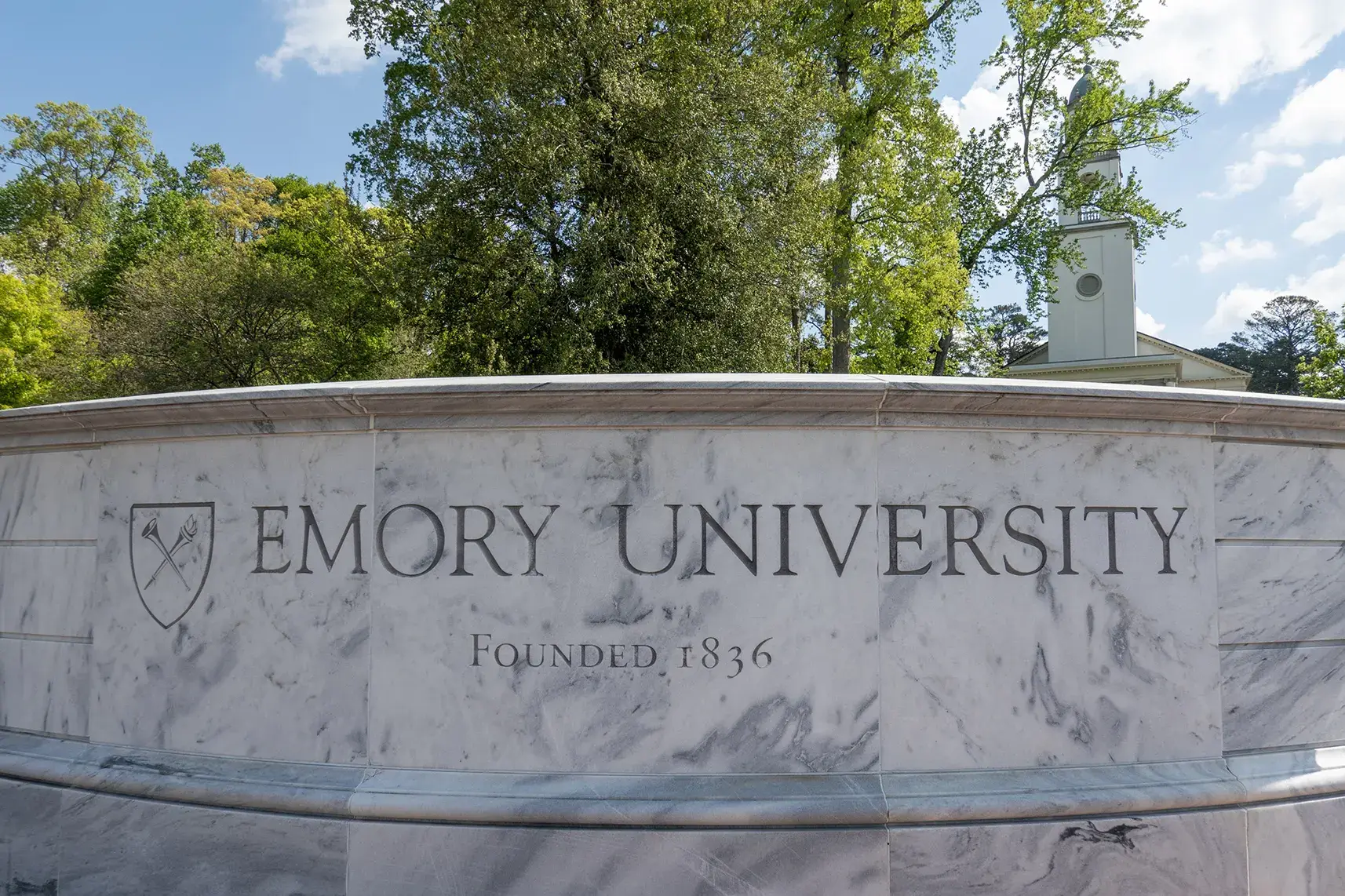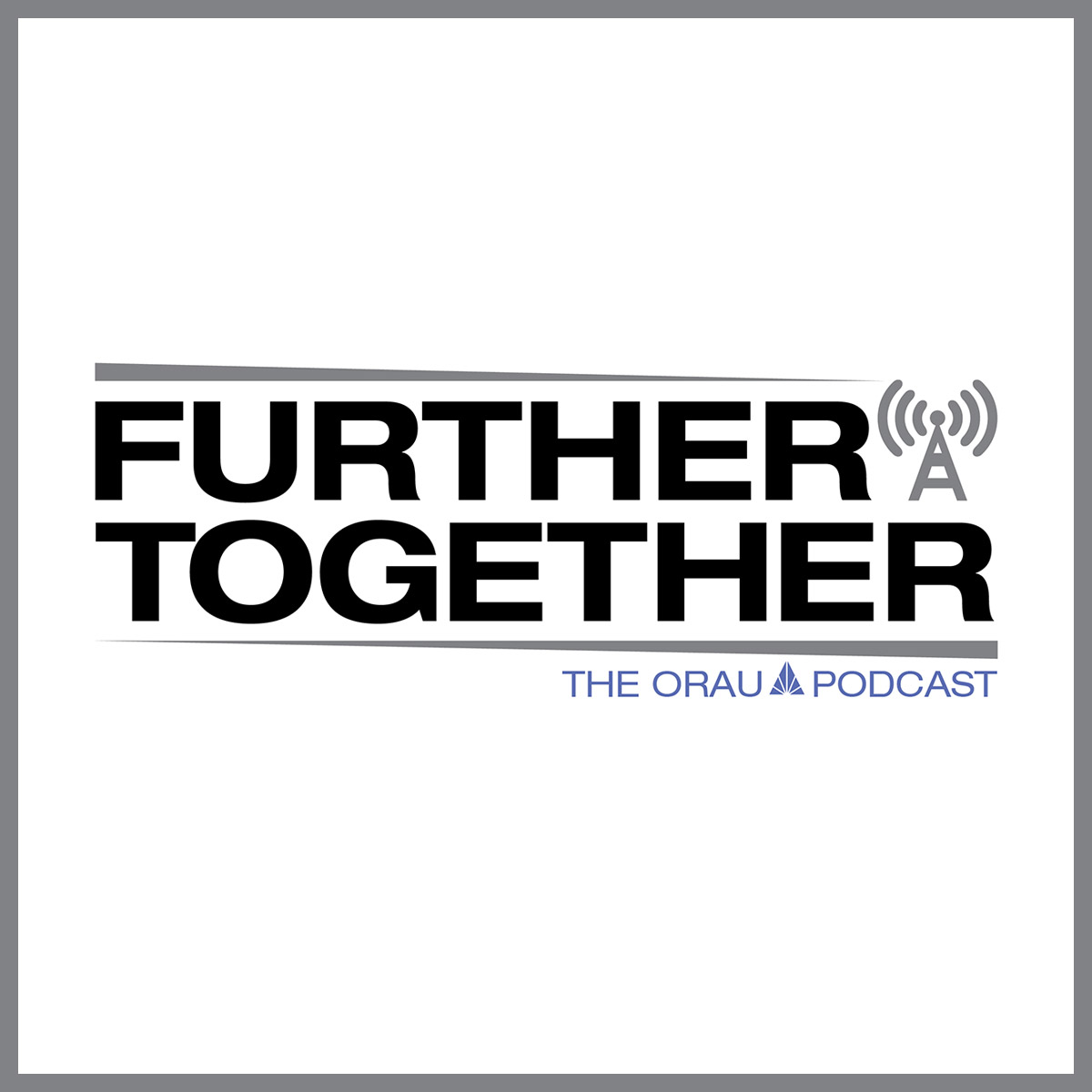ORAU’s University Consortium connects academic institutions across the country with government agencies, national laboratories and private industry to advance scientific education and research. (If you need a refresher on how our consortium works, read this blog: ORAU’s consortium—what’s that?) Today, we’re highlighting one of those institutions—Emory University in Atlanta, Georgia, a university with a proud history of research.
Kimberly Eck and Todd Scherer from Emory recently joined us on “Further Together: The ORAU Podcast” to discuss the university’s research. Emory was recently ranked third in the world when it comes to discovering new drugs on the market that benefit people, behind only the National Institutes of Health and the University of California.

Kimberly Eck, senior associate vice president for research at Emory University, and Todd Scherer, executive director of the Office of Technology Transfer at Emory University
Eck is the senior associate vice president for research at Emory and has been at the university for four years. Scherer is the executive director of the Office of Technology Transfer and has been at Emory for 22 years.
Eck explained that Emory University is across the street from the U.S. Centers for Disease Control and Prevention headquarters, which has created opportunities for collaboration between the two entities.
“Emory last year did $1.2 billion in total research expenditures. Crossing that $1 billion mark was a big deal for us,” she said. “We celebrate that, we're excited about that. And our largest research portfolio is biomedical research. We do infectious disease, global health, brain health, artificial intelligence. Part of being a comprehensive university and having all of these disciplines represented is we see a lot of really interesting collaborations.”

Emory University’s campus is located in Atlanta, Georgia
Eck also discussed Type 3 diabetes, a form of diabetes which is still being characterized and described by experts in multiple healthcare fields. Emory University is one of many international collaborators in this research.
“Right now, we refer to this as a chronic insulin resistance and insulin deficiency state that's mostly confined to the brain. And the hypothesis is that this can lead to Alzheimer's disease and neurodegeneration,” she explained. “To understand that you have to follow people for a really long period of time. You have to follow people for years, and years and years. We have a 17-year cohort where we've been taking blood samples, we've been surveying these individuals, hundreds of people for over 17 years. And now we're going to start to look at and try to define this Type 3 diabetes. So, that's a really cool project that crosses global health, brain health, public health, all rolled into one.”
Scherer also spent time in the interview discussing the role of tech transfer, and why it is important to the research process.
“We are recipients of public funds to support research, so that when research has the potential to result in life-saving medical products and there can be other technologies that can benefit the public as well, to make sure that these results get developed into those products and services,” he explained. “Technology transfer is a university's way to proactively address these opportunities. There are a lot of great things that come out of research. There are publications that advance the world's knowledge. We train tomorrow's workforce. But occasionally those research findings have commercial potential. That is where tech transfer begins.”
Scherer mentioned a recent example of tech transfer which had widespread applications: Olumiant, a drug which had already been on the market to treat rheumatoid arthritis, was discovered by Emory University researchers to have treatment applications for COVID-19.

In an example of tech transfer, Emory University points to its researchers finding COVID-19 treatment applications in a drug that has previously been on the market for rheumatoid arthritis.
In an example of tech transfer, Emory University points to its researchers finding COVID-19 treatment applications in a drug that has previously been on the market for rheumatoid arthritis.
“We have many other examples of technologies and things that have hit the market, but I believe what it demonstrates is the ultimate validation of a tech transfer program. It is for new products to end up on the market,” said Scherer. “And that's when we fulfill our commitment to the taxpayers of this country—to make sure that we are taking advantage of their funding to make sure that it can benefit the country and the world in as many ways as possible.”
